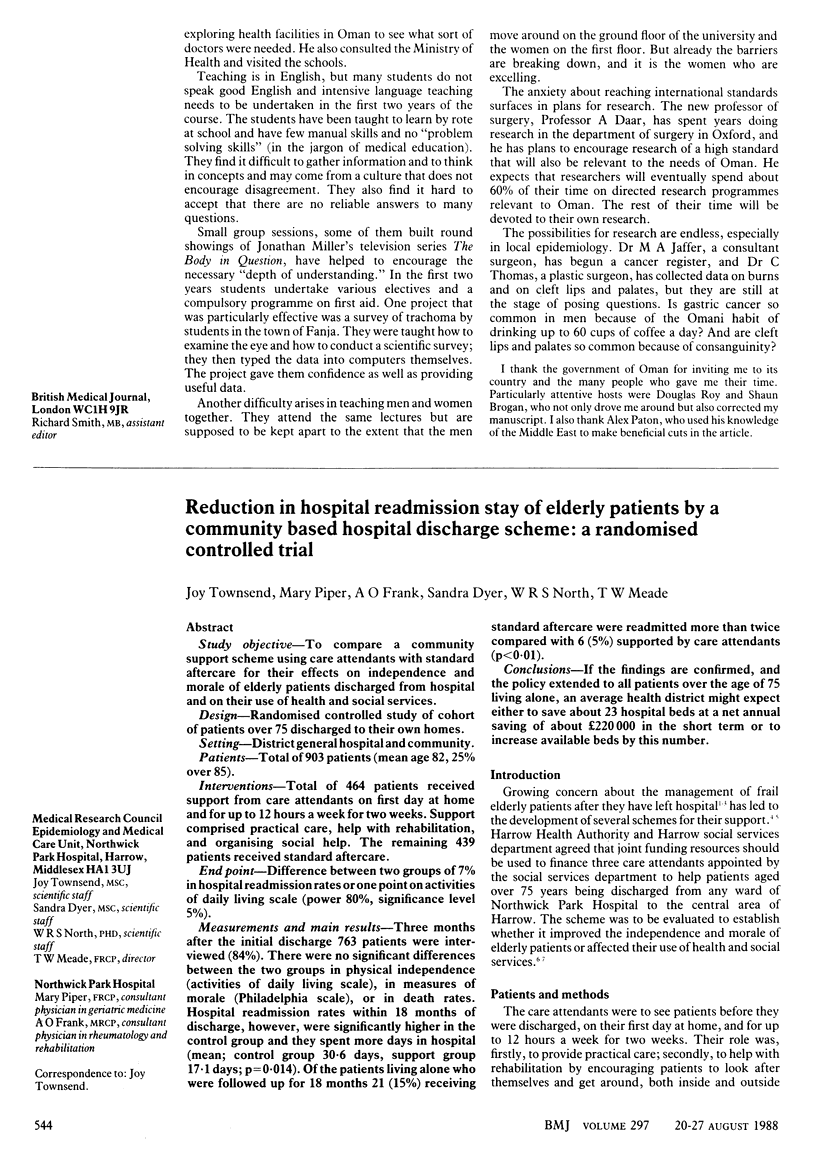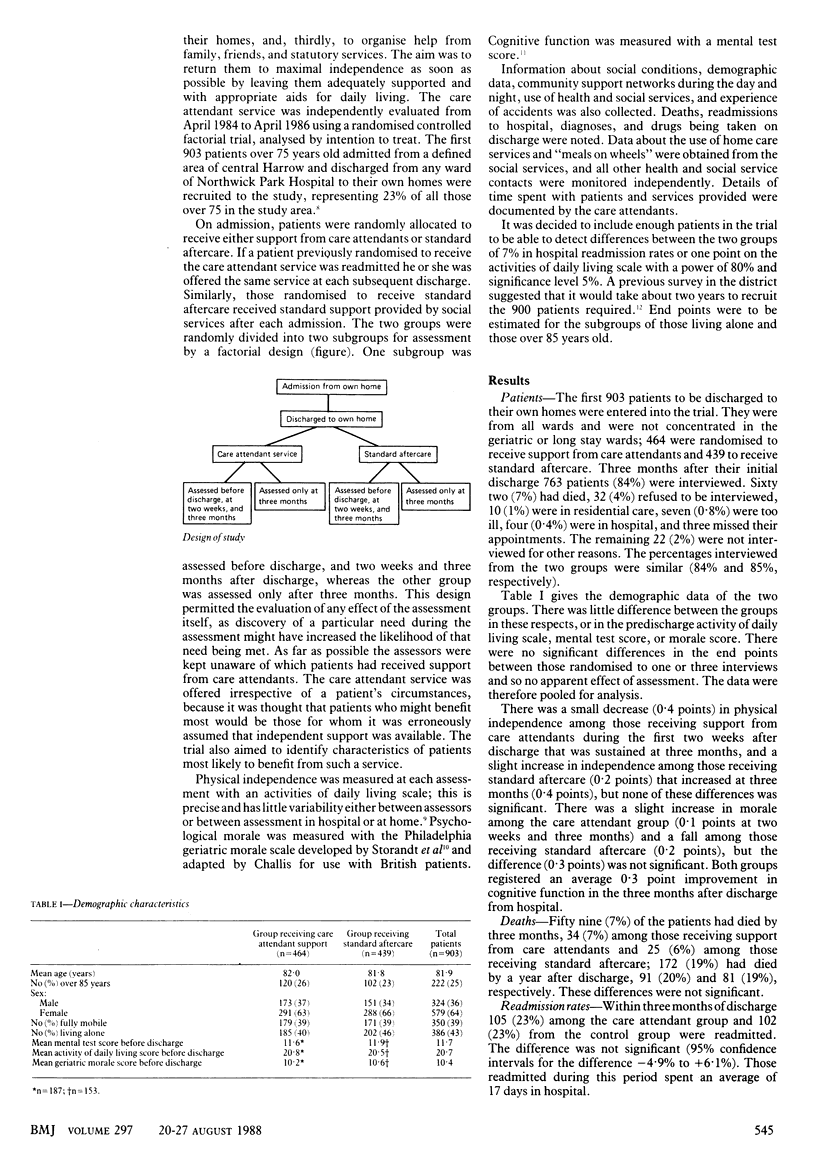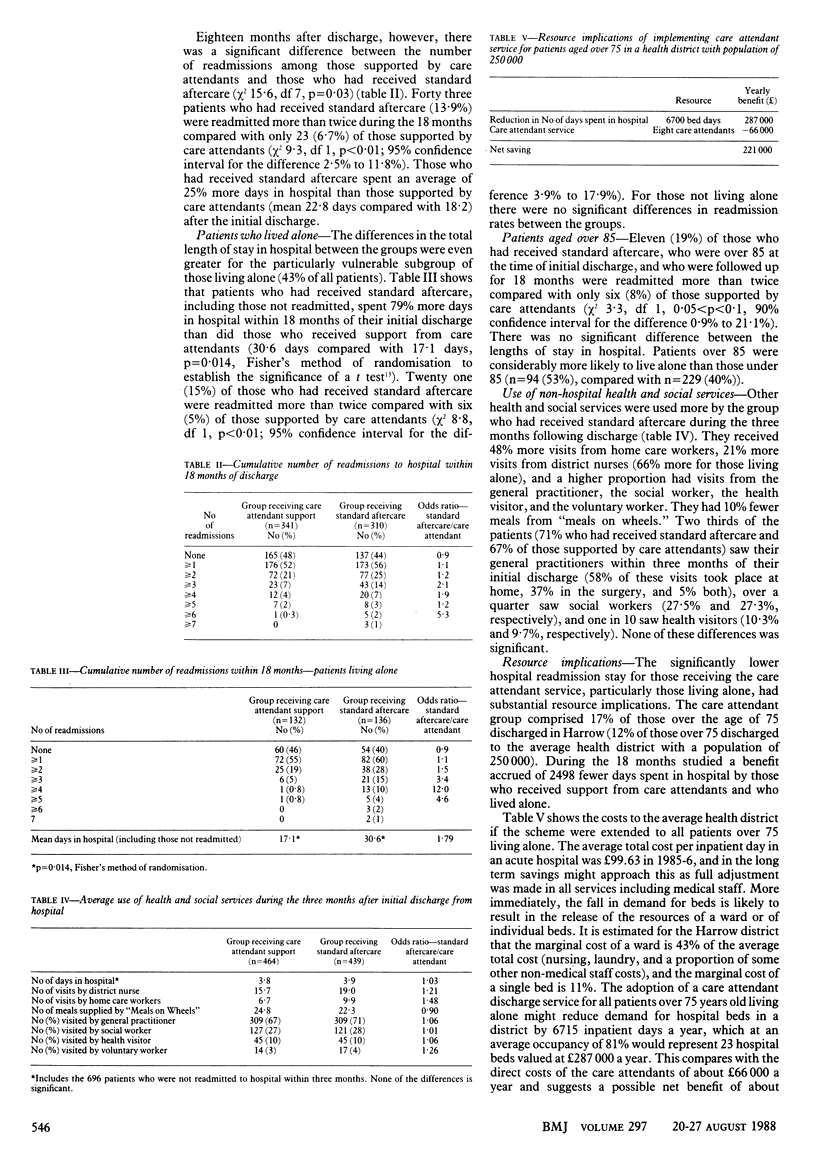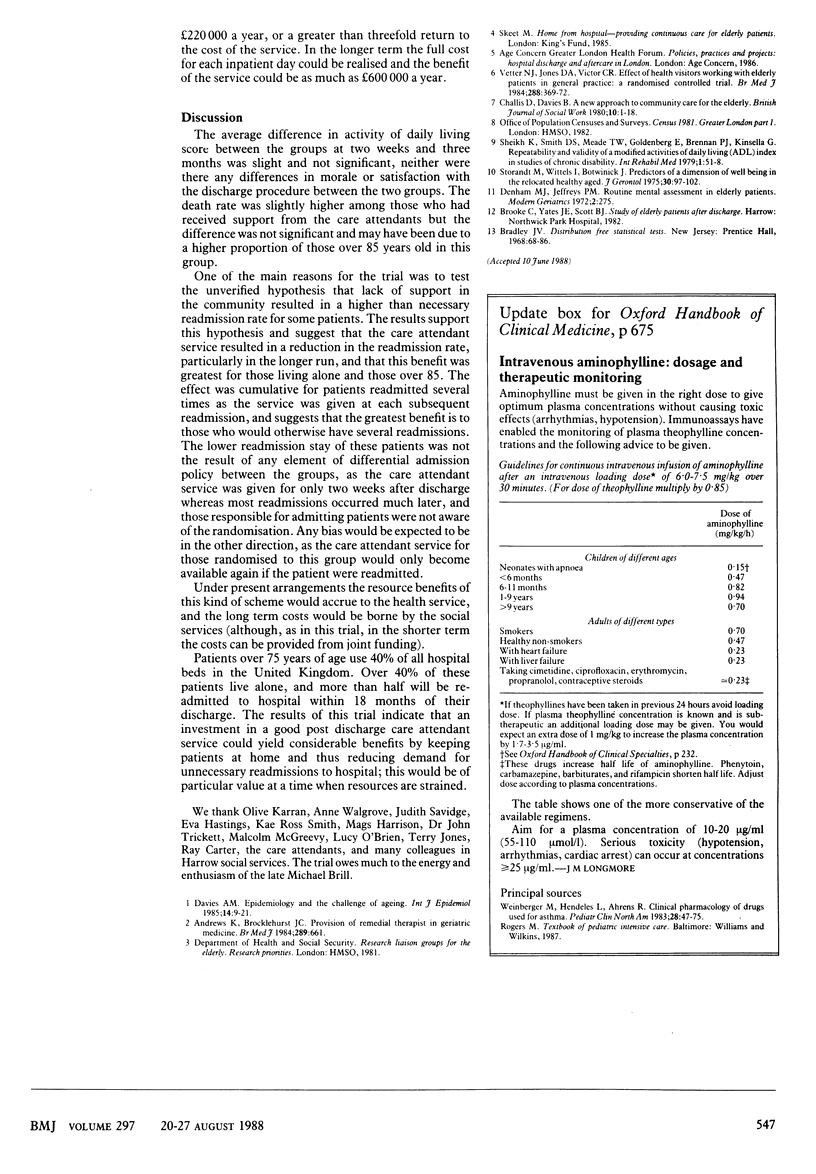Abstract
STUDY OBJECTIVE--To compare a community support scheme using care attendants with standard aftercare for their effects on independence and morale of elderly patients discharged from hospital and on their use of health and social services. DESIGN--Randomised controlled study of cohort of patients over 75 discharged to their own homes. SETTING--District general hospital and community. PATIENTS--Total of 903 patients (mean age 82, 25% over 85). INTERVENTIONS--Total of 464 patients received support from care attendants on first day at home and for up to 12 hours a week for two weeks. Support comprised practical care, help with rehabilitation, and organising social help. The remaining 439 patients received standard aftercare. END POINT--Difference between two groups of 7% in hospital readmission rates or one point on activities of daily living scale (power 80%, significance level 5%). MEASUREMENTS AND MAIN RESULTS--Three months after the initial discharge 763 patients were interviewed (84%). There were no significant differences between the two groups in physical independence (activities of daily living scale), in measures of morale (Philadelphia scale), or in death rates. Hospital readmission rates within 18 months of discharge, however, were significantly higher in the control group and they spent more days in hospital (mean; control group 30.6 days, support group 17.1 days; p = 0.014). Of the patients living alone who were followed up for 18 months 21 (15%) receiving standard aftercare were readmitted more than twice compared with 6 (5%) supported by care attendants (p less than 0.01). CONCLUSIONS--If the findings are confirmed, and the policy extended to all patients over the age of 75 living alone, an average health district might expect either to save about 23 hospital beds at a net annual saving of about pounds 220,000 in the short term or to increase available beds by this number.
Full text
PDF



Selected References
These references are in PubMed. This may not be the complete list of references from this article.
- Andrews K., Brocklehurst J. C. Provision of remedial therapists in geriatric medicine. Br Med J (Clin Res Ed) 1984 Sep 15;289(6446):661–661. doi: 10.1136/bmj.289.6446.661. [DOI] [PMC free article] [PubMed] [Google Scholar]
- Davies A. M. Epidemiology and the challenge of ageing. Int J Epidemiol. 1985 Mar;14(1):9–21. doi: 10.1093/ije/14.1.9. [DOI] [PubMed] [Google Scholar]
- Sheikh K., Smith D. S., Meade T. W., Goldenberg E., Brennan P. J., Kinsella G. Repeatability and validity of a modified activities of daily living (ADL) index in studies of chronic disability. Int Rehabil Med. 1979;1(2):51–58. doi: 10.3109/03790797909164024. [DOI] [PubMed] [Google Scholar]
- Storandt M., Wittels I., Botwinick J. Predictors of a dimension of well-being in the relocated healthy aged. J Gerontol. 1975 Jan;30(1):97–102. doi: 10.1093/geronj/30.1.97. [DOI] [PubMed] [Google Scholar]
- Vetter N. J., Jones D. A., Victor C. R. Effect of health visitors working with elderly patients in general practice: a randomised controlled trial. Br Med J (Clin Res Ed) 1984 Feb 4;288(6414):369–372. doi: 10.1136/bmj.288.6414.369. [DOI] [PMC free article] [PubMed] [Google Scholar]
- Weinberger M., Hendeles L., Ahrens R. Clinical pharmacology of drugs used for asthma. Pediatr Clin North Am. 1981 Feb;28(1):47–75. doi: 10.1016/s0031-3955(16)33962-1. [DOI] [PubMed] [Google Scholar]


